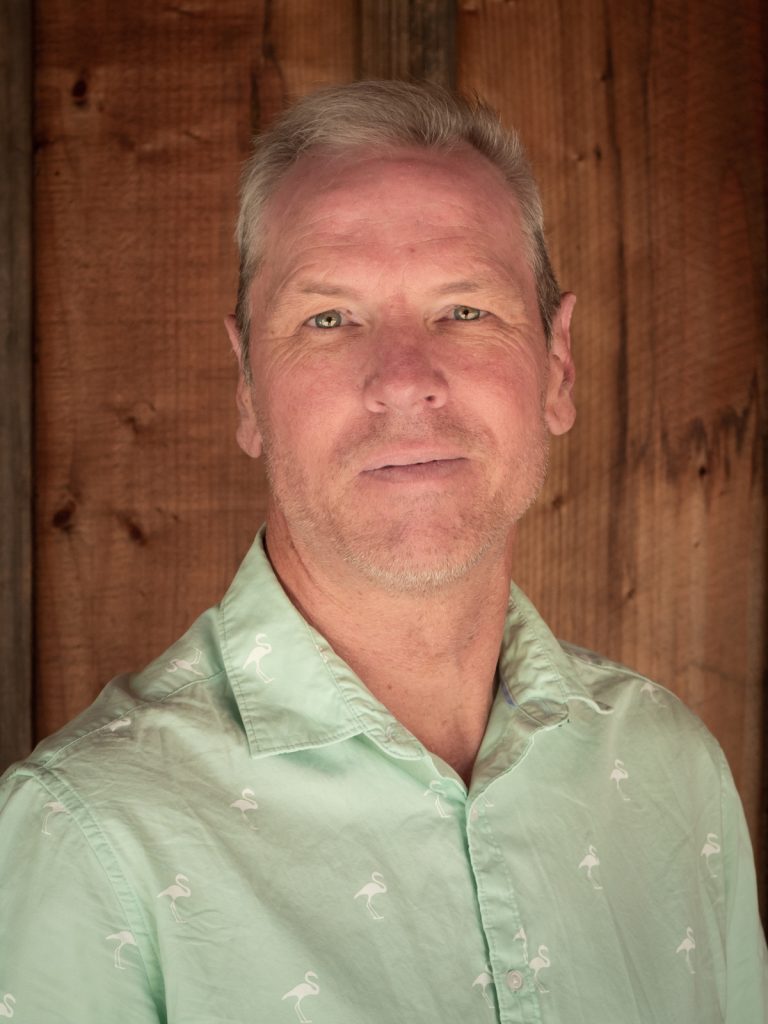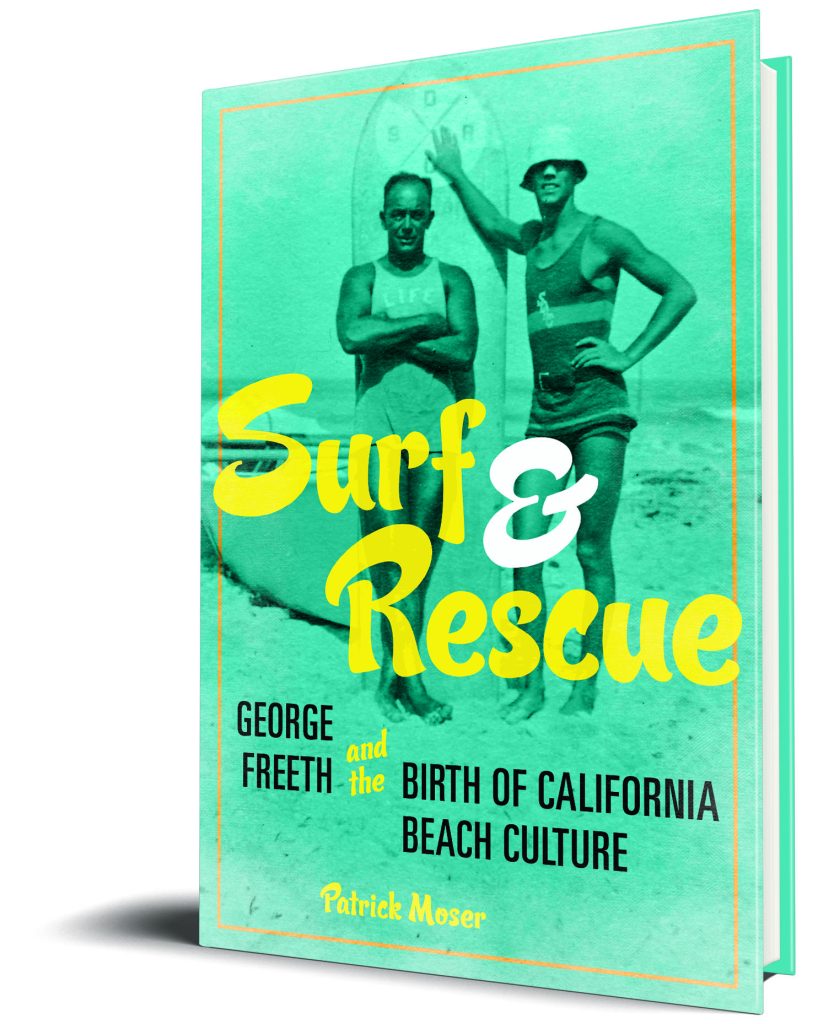Patrick Moser, author of Surf and Rescue: George Freeth and the Birth of California Beach Culture, answers questions on his other book influences, discoveries, and reader takeaways from his book.
Q: Why did you decide to write this book?
I wanted to learn more about the life and accomplishments of George Freeth. The book began as a novel based on Freeth’s life. I gave up after a hundred pages or so because I was clinging too closely to the few facts that I knew about him—that’s where the writing kept taking me. So I decided that I had to write his biography before I could write a novel about him. Once I started digging into his life, I realized that I had more than a biography: I had a history of California beach culture yet to be told. I rely heavily on databases of newspapers from Freeth’s era. The thousands of articles have helped me fill in the gaps in Freeth’s life and represent a great boon for doing the same for the history of a sport like surfing.
Q: Who were your biggest influences?
I’ve long admired William Finnegan’s writing, especially his surfing material, much of which appears in Barbarian Days: A Surfing Life. His ability to evoke the characters, places, and experience of surfing is the gold standard for the sport, one I aspire to. I admire books like Jon Krakauer’s Into the Wild. It’s well researched yet accessible. It tells a compelling story, with careful attention to language and narrative structure. He knows how to keep a reader turning the page. I like the idea of presenting a history that is both authoritative and interesting to read. My book is an attempt to make the academic research that I do accessible and meaningful to a broad audience. To do that I draw on techniques that creative writers use to tell their stories: character development, detail and description, figurative language, and plot structure.
Q: What is the most interesting discovery you made while researching and writing your book?
I realized that Freeth’s instruction of surfing and lifeguarding in early twentieth-century California established the foundation of the state’s world-famous beach culture. As I tracked his influence in both activities, I discovered that their combination—essentially his insistence that the lifeguards he trained learn how to surf—set the stage for a culture that developed around riding waves and enjoying the many opportunities that beaches provided.

Q: What myths do you hope your book will dispel or what do you hope your book will help readers unlearn?
Freeth’s story offers a corrective to persistent beliefs that Caucasians who had arrived in Hawai`i in 1907—principally Alexander Hume Ford and Jack London—“saved” surfing from extinction in the early twentieth century through their promotional efforts. Although the two mainlanders were enthusiastic boosters of the sport, Freeth represented the cultural continuity of Native Hawaiians practicing this centuries-old tradition even as he adapted it to his life and work in California.
Q: What is the most important idea you hope readers will take away from your book?
I hope readers see how one individual can make such a positive impact on people’s lives. Freeth did this not only by saving many lives himself as a lifeguard, but by transforming the way people thought about the beach. At a time when many beach visitors were afraid of the ocean because of the persistent problem of drowning, Freeth showed them that the ocean could be a tremendous source of pleasure. In the nearly dozen years he spent in California, he gave thousands of lessons in swimming, surfing, diving, and ocean rescue. He taught a generation of Southern Californians that they too could have fun and confidence in the ocean.
Q: What do you like to read/watch/or listen to for fun?
I’m reading Jack Kerouac’s On the Road right now. It’s the Original Scroll edition, which I didn’t think I’d like because it’s about three hundred pages without paragraph or page breaks—just one huge block of prose. But the energy of the writing has carried me along. I don’t even notice the lack of breaks anymore. It’s raw and passionate. The writer in me admires Kerouac’s ability to grab his readers, put them in the car seat beside him, and just bomb through the story. I’m enjoying the ride.

